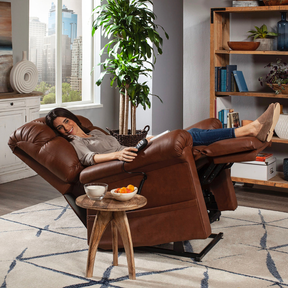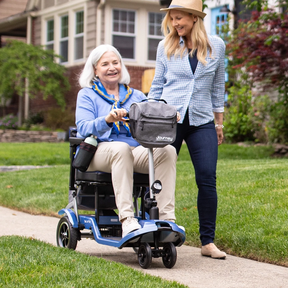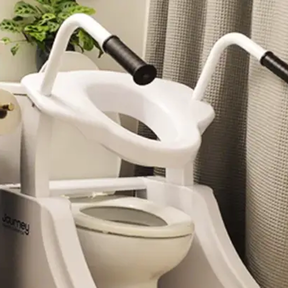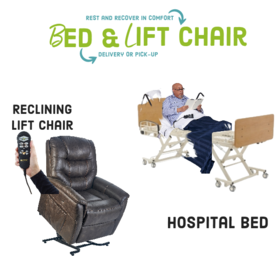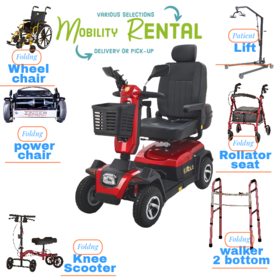Blog Fascinating Wheelchair Facts Everyone Should Know
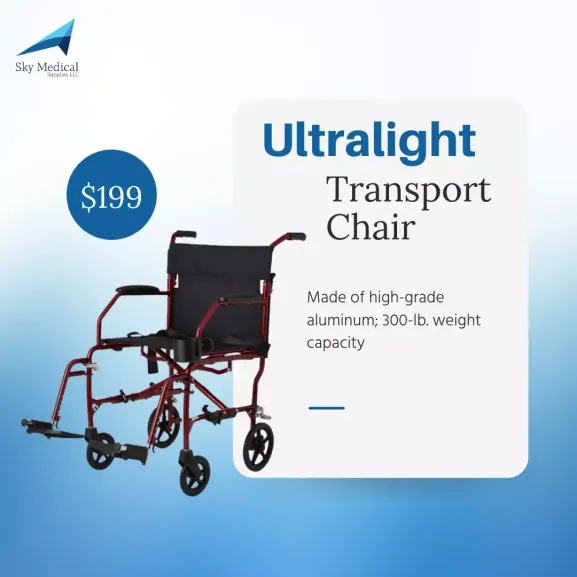
A wheelchair is a fantastic way to improve personal freedom for people with physical disabilities. Wheelchairs empower individuals to enjoy and participate in activities with families, friends, and partners. Wheelchair users can perform tasks previously thought unattainable despite their condition. It might be as simple as taking a lengthy stroll or even climbing suitable paths with a friend. Here are some wheelchair facts that will enlighten and inform you about the versatility and importance of this mobility aid.
The History and Types of Modern Wheelchairs
When exploring wheelchair facts, it's important to understand the evolution of wheelchairs, which is rich with innovation. These range from hefty manual wheelchairs to sophisticated electric models with stair-climbing capabilities. The modern wheelchair's conventional design is based on the cross-frame design, first proposed in 1932 by American mining engineer Herbert A. Everest and American mechanical engineer Harry C. Jennings, both of whom were disabled. This design has paved the way for the wheelchair's development into a versatile and essential mobility aid.
In the past, wheelchairs were relatively undeveloped, made primarily from wood and other heavy materials. These early designs were cumbersome and difficult to maneuver. However, as technology and materials evolved, so did the wheelchair. The introduction of lightweight materials such as aluminum and titanium revolutionized wheelchair design, making them more manageable and easier to transport.
Modern wheelchairs are designed with the user's comfort and functionality in mind. There are various types of wheelchairs available today, each tailored to meet specific needs. For instance, sports wheelchairs are built for performance, with features that enhance speed and agility. On the other hand, electric wheelchairs offer advanced mobility solutions, including options for users to control their chairs with minimal physical effort, sometimes even through voice commands or eye-tracking technology.
Moreover, the development of wheelchairs that can climb stairs or navigate rough terrain has expanded the possibilities for wheelchair users, allowing them to access places that were previously off-limits. These advancements highlight the continuous innovation in wheelchair technology, driven by the need to improve the quality of life for those who rely on these devices.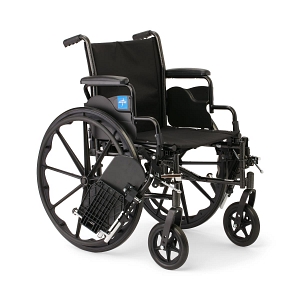
Wheelchair Facts That Might Surprise You
1. Nobody is "Wheelchair Bound."
Among the most important wheelchair facts is that those who use wheelchairs are not confined to them. A wheelchair is a tool for mobility, not a restriction. It liberates and empowers individuals. Wheelchair users may not always be seated; they can stand or walk depending on their condition. For instance, someone with Multiple Sclerosis (MS) might use their chair on "bad" days while walking on better days.
This common misconception that wheelchair users are "bound" or "confined" to their chairs overlooks the flexibility that many people have. Some individuals may use wheelchairs part-time, only relying on them when absolutely necessary. The idea that a wheelchair limits a person is outdated and doesn't reflect the reality that these devices offer freedom, not confinement.
Additionally, it's worth noting that many wheelchair users are highly active and engage in various sports and outdoor activities. Adaptive sports, such as wheelchair basketball or wheelchair racing, demonstrate the athleticism and capability of wheelchair users. These sports not only provide physical benefits but also challenge societal perceptions of what it means to use a wheelchair.
2. A Wheelchair is an Extension of Personal Space.
Another of the critical wheelchair facts is that a wheelchair often becomes an extension of the user's body, so the rules of personal space apply. Never lean on, touch, or move a wheelchair without the owner's consent, even if the chair is unoccupied. This respect for personal space is crucial for the comfort and dignity of the wheelchair user.
Imagine if someone leaned on you or used your body for support without asking. It would feel intrusive and disrespectful, right? The same principle applies to a wheelchair. It's not just a piece of equipment; it's part of the user's personal space. Respecting this space is vital in interactions with wheelchair users.
Moreover, understanding this fact helps promote better social etiquette around wheelchair users. It encourages a more inclusive environment where wheelchair users feel respected and valued, not as objects of curiosity or pity but as individuals with their own personal space that deserves to be respected.
3. Never Presume a Wheelchair User Requires Assistance.
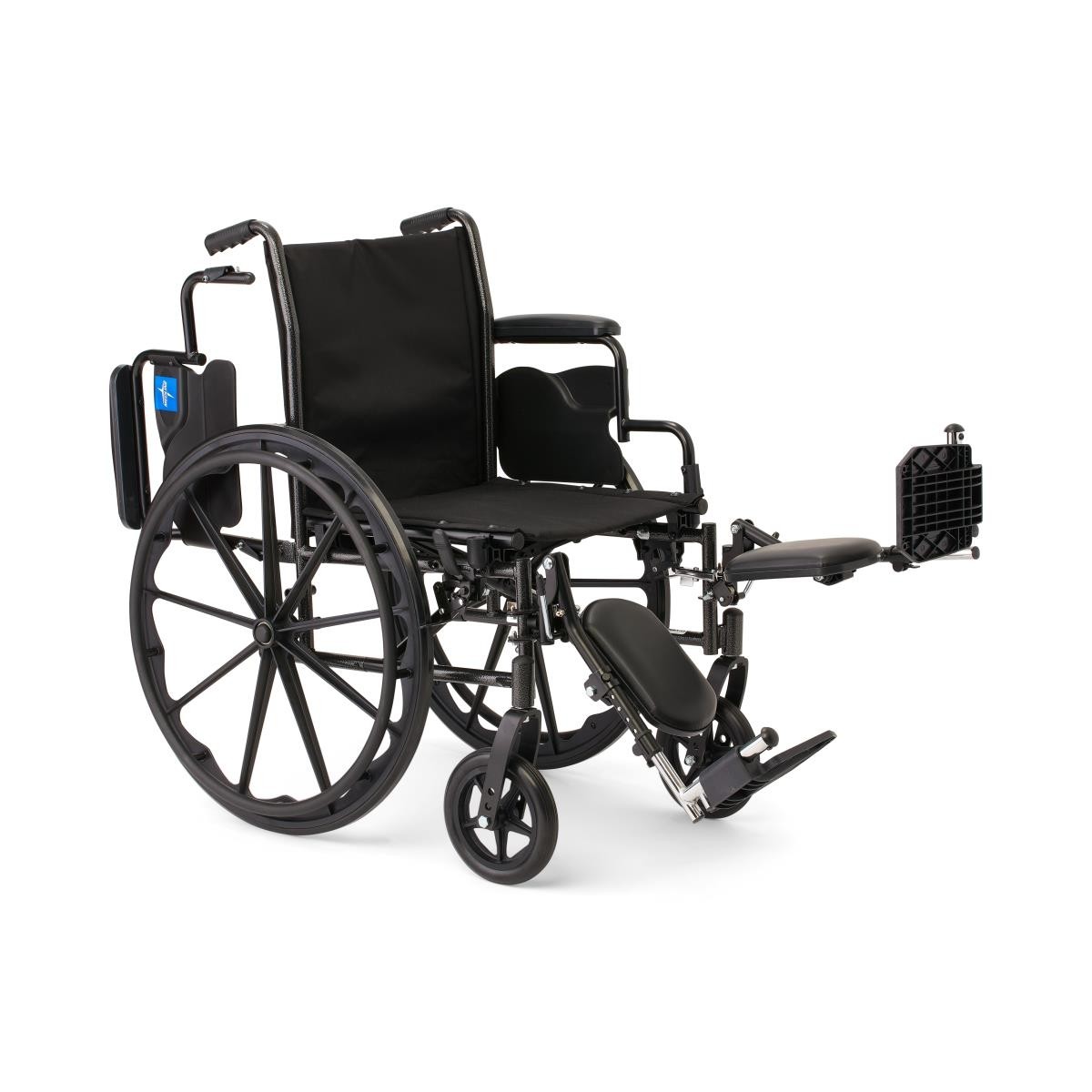 One of the common wheelchair facts people overlook is that while offering help is kind, it’s essential not to assume that a wheelchair user needs it. Many people are perfectly capable of managing their daily activities independently. If you feel compelled to offer assistance, simply ask if they need help and respect their answer.
One of the common wheelchair facts people overlook is that while offering help is kind, it’s essential not to assume that a wheelchair user needs it. Many people are perfectly capable of managing their daily activities independently. If you feel compelled to offer assistance, simply ask if they need help and respect their answer.
It’s natural to want to help others, especially when we perceive someone as needing assistance. However, it's important to recognize that wheelchair users often have developed their own methods and routines for accomplishing tasks. Unsolicited help can sometimes disrupt these routines or make the individual feel less capable.
Asking if someone needs help before jumping in is a simple yet effective way to show respect. It allows the wheelchair user to maintain their independence and dignity. If they decline your offer, respect their decision and trust that they know what's best for themselves. Independence is a crucial aspect of life for many wheelchair users, and maintaining it is often a source of pride.
4. Wheelchair users can have amazing love lives.
Included in the lesser-known wheelchair facts is that wheelchair users have the same desires and needs as anyone else, including a healthy love life. While certain physical limitations might exist, creativity and adaptive tools can make intimate experiences enjoyable and fulfilling. There’s always a way to adapt and enjoy intimacy.
The notion that wheelchair users are somehow less capable of having fulfilling relationships is not only inaccurate but also damaging. Everyone deserves love and intimacy, and wheelchair users are no exception. Adaptive tools, along with open communication between partners, can overcome many of the challenges that might arise.
Furthermore, it’s important to understand that intimacy isn't just about physical activity. Emotional connection, trust, and mutual respect are at the core of any healthy relationship, and these elements are just as present in relationships involving wheelchair users. By focusing on these aspects, wheelchair users can enjoy rich, fulfilling love lives.
5. Wheelchair Users Can Rock the Dance Floor.
Among the fun wheelchair facts is that wheelchair users can and do enjoy dancing! It's not uncommon to see someone in a wheelchair having a great time on the dance floor. Just like anyone else, they can move their body, enjoy the music, and have fun.
Dancing is a universal form of expression, and wheelchair users are no different when it comes to enjoying the rhythm of the music. Adaptive dance styles have been developed to allow wheelchair users to participate fully in the joy of dancing. These styles include a mix of traditional dance moves with those that can be performed seated or using the wheelchair as part of the dance.
Participating in social events, including dancing, is an important part of life. It fosters community, brings joy, and allows for personal expression. By recognizing that wheelchair users can and do dance, we can help break down barriers and create more inclusive spaces for everyone.
6. Wheelchair Users Have Social Lives Beyond "Caregivers".
One of the important wheelchair facts to remember is that wheelchair users, like anyone else, have friends, family, and social circles. It’s a misconception to assume that someone accompanying a wheelchair user is their caregiver. Often, these are just friends or family members enjoying time together.
This misconception can be frustrating for wheelchair users, as it reduces their relationships to a purely functional level, ignoring the personal connections and friendships they share with others. Wheelchair users are active participants in their communities, forming bonds that have nothing to do with care or assistance.
Understanding this fact helps us to treat wheelchair users as full, complex individuals rather than reducing them to their mobility aids. It allows for more meaningful and respectful interactions, free from assumptions about their relationships or capabilities.
7. Accessible Parking Spaces and Restrooms Are Vital.
Another of the critical wheelchair facts is that accessible amenities like parking spaces and restrooms exist because people genuinely need them. It’s important to remember that using these facilities without a valid reason is inconsiderate and, in some cases, illegal. Respecting these spaces ensures they are available for those who rely on them.
These accessible facilities are not a convenience; they are a necessity for many wheelchair users. Parking spaces designed for accessibility are often located closer to building entrances and have additional space for loading and unloading wheelchairs. Similarly, accessible restrooms are designed with features that accommodate wheelchairs, making them essential for the independence and comfort of wheelchair users.
By respecting the intended use of these facilities, we contribute to a more inclusive society where wheelchair users can navigate public spaces with dignity and ease. It’s a small but significant way to support the rights and needs of wheelchair users.
8. Yes, Wheelchair Users Can Drive.
Among the innovative wheelchair facts is that many vehicles can be adapted with hand-controlled systems or other modifications to allow wheelchair users to drive. Some cars even allow the user to operate the vehicle while still in the wheelchair, thanks to clever docking systems. While not every vehicle can be adapted, these innovations mean that driving is accessible to many wheelchair users.
Driving offers freedom and independence, and wheelchair users are no different in their desire for these experiences. Adaptive technology has come a long way, allowing for a variety of modifications to vehicles. These can include hand controls for acceleration and braking, modified steering systems, and even the ability to drive directly from the wheelchair.
For many wheelchair users, being able to drive is not just about convenience; it’s about participating fully in society. It allows them to commute to work, run errands, and travel, all on their own terms. This ability to drive represents a significant step toward independence and empowerment for wheelchair users.
Explore our selection of wheelchairs and choose the one that suits you best. Whether you prefer to rent or buy, we've got you covered.
Tags
- contest
- event
- supplies
- design
- brand
- video
- Compression
- upright walker
- four wheel walker
- rollator
- wheelchair
- Ostomy
- elegantly
- elegantly
- accessibility
- Mobility
- knee walker rental
- knee scooter sales
- knee scooter
- post operative shoe
- anti-embolic stockings
- pain management
- cryotherapy therapy
- hot cold compress
- compression stockings
- lift chair
- wound Care
- air purifier
- fall prevention
- cushion
- oxygen therapy
- cpap, bipap
- Hospital Bed
- Life Aide
- EMS
- recovery
- splint
- knee brace
- Bathroom
- patient lift
- medical supply
- Wound dressings
- Lightweight Wheelchair
- hospital beds for sale
- sky medical supplies rentals
- compression socks
- Adult Diapers
- Rollator Walker
- Bed Wedge Pillow
- Hospital beds
- Patient Lifts and Slings
- Portable Oxygen Concentrator
- Patient Lift Slings
- knee scooter rental
- folding mobility scooter
- mobility scooter
- medical shoes
- raised toilet seat
- hospital beds for rent
- lift chair recliner
- chair lift
- electric wheelchair
- Power Lift Recliners for Elderly
- Senior Walkers
- Bedside Commodes
- whill wheelchair
- compression hose
- Whill Electric Wheelchairs
- Bariatric Wheelchair
- Recliner Chairs with Lift
- Colostomy Bag
- Crutches
- Medical Wedge Pillow
- skin barrier tape
- Post Surgery Ice Machine
- Bedside Commode
- chair lift recliners
- cane holder scooter
- lift chair prices
- drop arm commode
- rollator walker with ergonomic seats
- Hospital Bed Rental
- Wheelchair Tray
- Golden Technologies Lift Chair
- Nova GetGo Junior Rollator
- power lift recliners
- Knee Scooters and Crutches:
- stand up walker for seniors
- stand up walker as seen on TV
- Women's Walking Canes
- Knee Immobilizers
- Bed Wedge Pillow
- Medical Supply Stores
- Sit to Stand Lifts
- Grab Bars
- Compression Gloves
- incontinence bed pads
- Lift Reclining Chair
- Knee Walker Scooters
- Hernia Belt Near You
- Mobility Scooter Stores Near Me
- Folding Knee Walker
- Oxygen Concentrator Store
- Inogen Battery
- Electric Bed Frames
- Placing Lift Chair
- diaper brief
Related Posts
Get weekly articles in your inbox on the latest medical supply news, exclusive deals, and helpful health tips.
